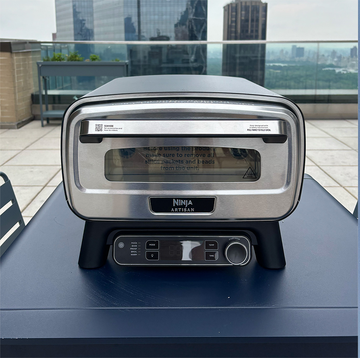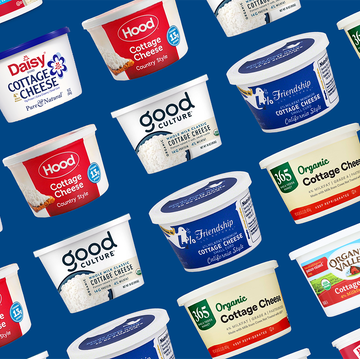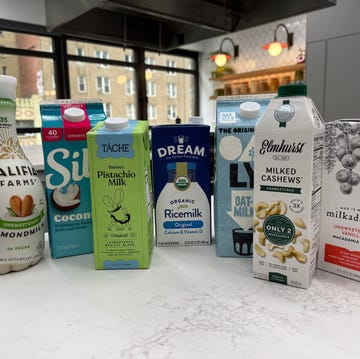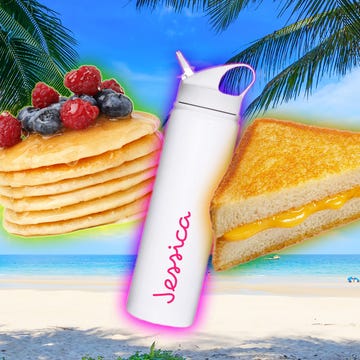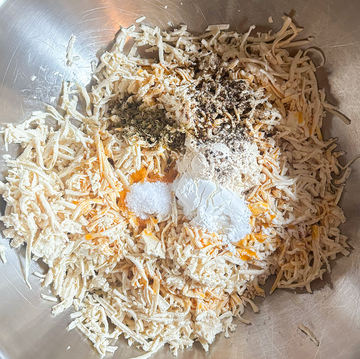1Dented canned goods
 NurPhoto//Getty Images
NurPhoto//Getty ImagesCanned goods like fruit, vegetables and tuna are a staple of food drives for good reason, but before you drop them off, do an inspection to ensure there aren't dents, rust or other signs of damage—that could mean that the food inside is spoiled.
2Glass jars
 Mohamed Elkhamisy / EyeEm//Getty Images
Mohamed Elkhamisy / EyeEm//Getty ImagesFruit, sauces, pickles, and other goods that are sold in glass jars should be avoided. They can easily shatter in transport, and food banks often cannot distribute them for safety reasons.
Advertisement - Continue Reading Below
3Fresh dairy
 Antenna//Getty Images
Antenna//Getty ImagesMost food banks are unable to accept items such as cheese, butter, and milk unless it's properly packaged and shelf stable. Powdered milk is a great option that will keep much longer than a gallon from the refrigerated section.
4Bulk foods
 Bill Oxford//Getty Images
Bill Oxford//Getty ImagesMassive bags of rice, flour, and sugar are great for feeding lots of people, but many food banks don't have the re-packaging resources necessary to properly distribute the food to multiple families. Stick to family-sized bags and boxes to make sure your donation gets the most use.
Advertisement - Continue Reading Below
5Candy
 Getty Images
Getty ImagesThough food bank staff might slip treats into donation bags on occasion, many locations are asking donors to steer clear of the sweets so that families in need have plenty of nutritious goods to take home.
6Some baby foods
 Tetra Images//Getty Images
Tetra Images//Getty ImagesBaby food in glass jars is a no-no, and baby formula is a dicey donation choice as well. Most food banks buy a specific type of formula with donation money to best serve the families in need in the area, plus formula expires very quickly and could go to waste.
Advertisement - Continue Reading Below
7Refrigerated items
 Javier Zayas Photography//Getty Images
Javier Zayas Photography//Getty ImagesCheck with your local food bank before you donate items like produce and meat, which might require refrigeration. Depending on the resources and facilities, they may not be accepted, though some locations are able to keep items cold, or even have freezer space for frozen foods.
8Sugar-sweetened drinks
 mikroman6//Getty Images
mikroman6//Getty ImagesUnhealthy beverage choices are being discouraged more and more by food banks and pantries across the country. Low-sugar products are your best bet, so steer clear of soda and certain juice drinks.
Advertisement - Continue Reading Below
9Homemade foods
 Sol de Zuasnabar Brebbia//Getty Images
Sol de Zuasnabar Brebbia//Getty ImagesThough it might seem like a nice gesture to make a batch of holiday cookies or homemade bread from scratch for families in need, food banks cannot accept goods that aren't properly packaged. Skip the baking since it will get thrown out anyway!
10Leftovers
 BRETT STEVENS//Getty Images
BRETT STEVENS//Getty ImagesSame as homemade baked goods, any leftovers from the holidays should stay in your fridge or given to loved ones rather than food banks. For safety concerns food banks won't accept your leftovers no matter how delicious they may be.
Advertisement - Continue Reading Below
11Open packages
 Getty Images
Getty ImagesAny partially-used products or open packaging will be weeded out by staff and volunteers before items are distributed at a pantry. Stick to newly purchased items, or make sure to scan your donations before you bring them in for any damage.
12Expired foods
 Getty Images
Getty ImagesProducts that are past their listed expiration date will more often than not be excluded from the donation pool. If you think it's still perfectly good, better to use it up at home than risk it getting tossed at the food bank.
Advertisement - Continue Reading Below
Advertisement - Continue Reading Below
Advertisement - Continue Reading Below




